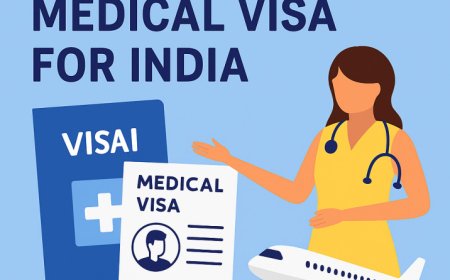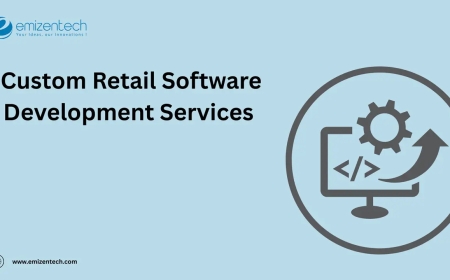Everything You Need to Know About Getting an Abroad Education Loan
Planning to study overseas? Learn everything about abroad education loan, including eligibility, documentation, repayment terms, and tips to increase your chances of approval.

Studying abroad is a dream for many students. Whether it's pursuing a masters in the UK, a business degree in the US, or a diploma in Australia, an international qualification adds immense value to your career. However, global education comes with a significant financial burden. This is where an abroad education loan becomes a valuable tool to fund your studies without compromising on your goals.
This post explores everything you need to know about applying for an abroad education loan including eligibility criteria, required documents, repayment options, and tips to increase your approval chances.
What is an Abroad Education Loan?
An abroad education loan is a financial product that helps students fund their overseas education. It covers not just tuition fees, but also living expenses, travel, books, health insurance, and other associated costs.
These loans are offered by banks and financial institutions with specific terms and conditions that differ from domestic education loans. Most lenders assess a students academic background, the course and institution chosen, and the financial profile of the co-applicant before approving the loan.
Benefits of Abroad Education Loans
-
Covers Complete Cost of Education
Abroad education loans typically cover tuition fees, accommodation, travel, food, exam and library fees, study material, and even laptop costs.
-
Flexible Repayment Options
You can usually repay the loan after the course completion, with options to extend the moratorium (grace) period.
-
Tax Benefits
In many cases, the interest paid on education loans is eligible for tax deductions under certain sections of the Income Tax Act.
-
Builds Financial Discipline
Starting early with loan repayment teaches students to manage finances responsibly, which benefits them long-term.
Eligibility Criteria for Abroad Education Loans
Before applying, its important to understand whether you qualify for a loan. While the criteria may vary from one lender to another, the common requirements include:
-
Indian Citizenship
The applicant must be an Indian national planning to study abroad at a recognized institution.
-
Confirmed Admission
You must have secured admission in a recognized foreign university or college for a full-time course.
-
Academic Record
A strong academic background helps. Most banks prefer students with consistent performance.
-
Eligible Course
Professional, technical, or job-oriented courses are usually preferred. Lenders are cautious about funding general or non-employment-focused programs.
-
Co-applicant/Guarantor
A parent or guardian is generally required to co-sign the loan, especially if the applicant has no source of income.
-
Collateral (for higher loan amounts)
Loans exceeding ?7.5 lakh may require collateral such as property, fixed deposits, or life insurance.
Documents Required
To apply for an abroad education loan, you typically need the following documents:
-
Admission letter from the foreign university
-
Mark sheets of previous academic qualifications
-
Entrance exam scores (GRE, GMAT, IELTS, etc.)
-
Passport and visa
-
KYC documents (Aadhaar, PAN)
-
Income proof of co-applicant (salary slips, ITRs)
-
Bank statements
-
Collateral documents (if applicable)
-
Breakdown of course fees and other expenses
Ensure all documents are up to date and organized to avoid delays in the loan process.
Expenses Covered Under Abroad Education Loan
A well-structured loan should cover the following:
-
Tuition fees
-
Airfare to and from the country
-
Living expenses (accommodation, food)
-
Examination and library charges
-
Insurance premiums (if required by the university)
-
Laptop or other essential study equipment
-
Visa processing fees
Always check the lenders terms to ensure all major costs are covered.
Repayment Structure
The repayment of an abroad education loan generally begins after a moratorium period, which includes:
-
Course duration + 6 to 12 months
-
You may choose to start paying only the interest during the study period
-
Full EMI repayment begins after the moratorium ends
Repayment tenure usually ranges from 5 to 15 years. Choosing a longer tenure lowers the monthly EMI but increases the total interest outgo. Always assess your future income prospects before finalizing the tenure.
Tips to Improve Your Loan Approval Chances
-
Secure Admission First
Apply for loans after you receive your admission letter from a recognized institution. It improves credibility.
-
Improve Your Co-applicants Credit Score
A good credit score and stable income help in getting the loan sanctioned faster.
-
Opt for a Recognized Course/University
Lenders are more confident lending to students attending reputed institutions abroad.
-
Prepare All Documents in Advance
Keep academic, financial, and identification documents ready and well-organized.
-
Provide Collateral (if needed)
For high-value loans, offering a property or fixed deposit as security improves approval chances and may even reduce interest rates.
Things to Keep in Mind
-
Currency Fluctuation: Keep in mind that loan amounts disbursed in Indian rupees may be affected by currency rate changes.
-
Prepayment Charges: Some lenders allow early repayment without penalties. Verify this to reduce overall interest.
-
Interest Accrual: Interest is often charged during the moratorium period. Ask whether its simple or compound interest.
Conclusion
An abroad education loan can make the dream of studying overseas a reality. With rising tuition costs and living expenses, self-funding an international education can be overwhelming. Loans not only ease this financial stress but also allow students to focus on academics rather than finances.
By understanding the eligibility, preparing the right documents, and choosing a recognized course and institution, you can significantly improve your chances of getting approved. Be informed, compare options, and plan wisely because your future is worth investing in.








































